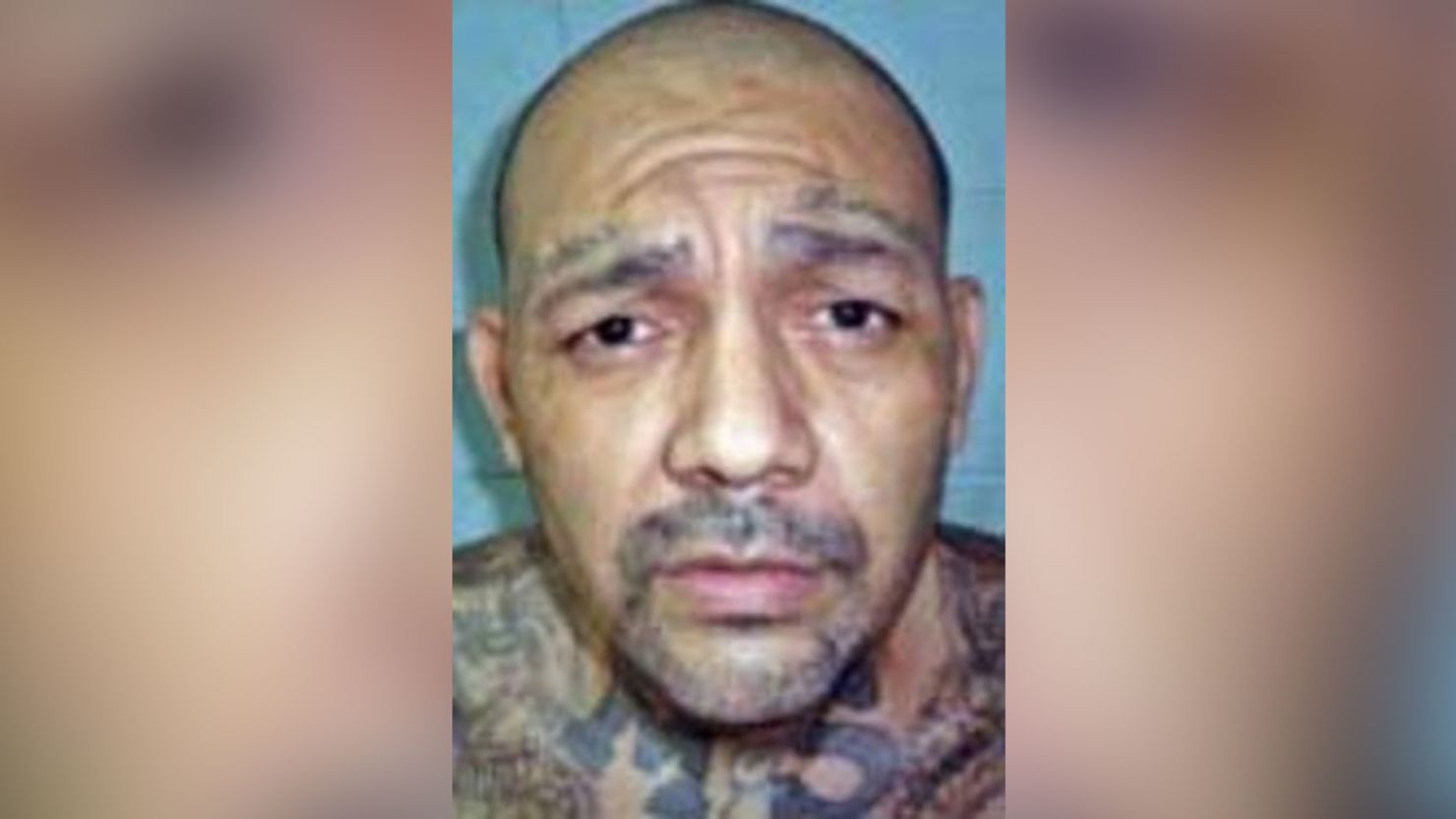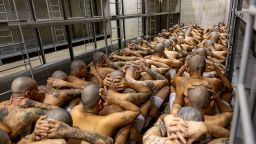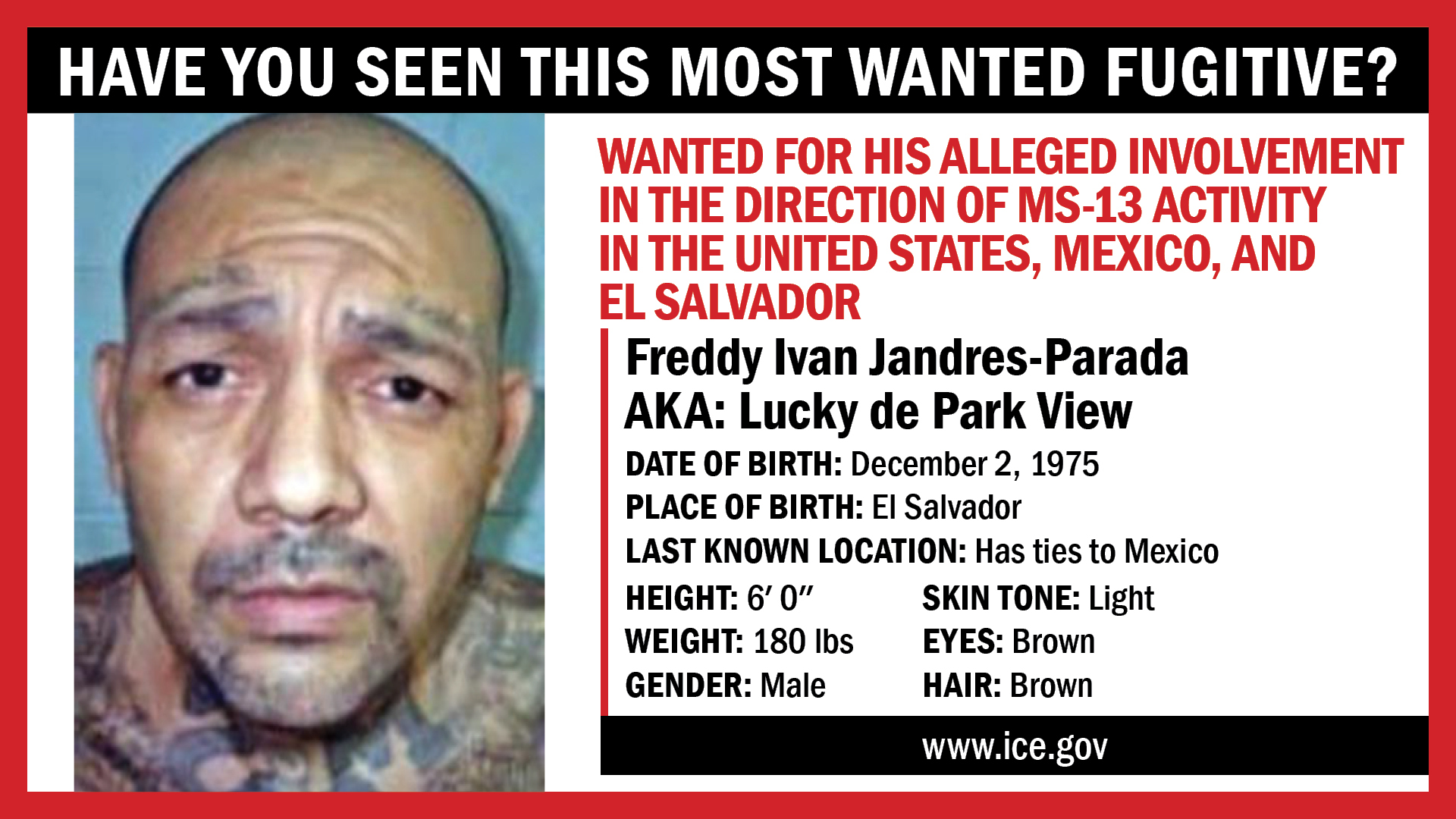Arheel's Uncle
Senior Reporter
Senior leader of transnational criminal organization MS-13 arrested after 4 years on the run, court documents say
By John Miller and Sabrina Shulman, CNNUpdated 3:41 PM EDT, Thu March 21, 2024

Freddy Ivan Jandres-Parada is seen in an undated photo included in a FBI wanted poster.
FBI
CNN —
After four years on the run, a senior leader of MS-13 – one of the largest transnational criminal organizations – was captured this month in Southern California on terrorism charges, court documents say.
Freddy Ivan Jandres-Parada was accused by federal prosecutors in the Eastern District of New York in December 2020 of being a member of MS-13’s board of directors, known as the Ranfla Nacional, along with a dozen other MS-13 members, according to his indictment. Federal authorities have been searching for him since, offering a reward for his capture on the FBI’s Most Wanted list.
Jandres-Parada was arrested on March 7 in San Diego by the FBI, according to federal officials. According to the detention order dated March 8, he waived his right to bail. CNN is working to identify a defense attorney for Jandres-Parada.

Related article Why El Salvador’s president Nayib Bukele wants everyone to know about his new prison
Federal prosecutors charged the alleged gang members with material support of terrorism and narco-terrorism, alleging the group ran “military-style training camps; obtained weapons, handguns, rifles, grenades, improvised explosive devices (‘IEDs’) and rocket launchers,” and “directed acts of violence and murder in El Salvador, the United States and elsewhere,” according to the indictment.
Jandres-Parada is one of a dozen of the Ranfla Nacional leaders who are charged with conspiracy to provide and conceal material support and resources to terrorists, conspiracy to commit acts of terrorism transcending national boundaries, conspiracy to finance terrorism and narco-terrorism conspiracy, according to the indictment.
As a member of the Ranfla Nacional, Jandres-Parada and others allegedly controlled the activities of MS-13 including approval of murders, assaults and kidnappings, extortion drug trafficking and other criminal activity, prosecutors say.
Jandres-Parada is being held at the federal jail in San Diego, according to inmate records, and will be transferred to federal custody in New York – where he was charged – to await trial.
CNN has reached out to the US Attorney’s Office for the Eastern District of New York for comment.
The MS-13 gang was established in the 1980s in the US by Central American immigrants in Southern California, according to Jandres-Parada’s 2020 indictment.
A 2008 FBI Threat Assessment says MS-13 members have severed the fingers of rivals with machetes, brutally killed suspected informants and committed rapes, assaults and other crimes.

Related article What is MS-13? The ‘transnational’ street gang on the FBI’s radar
The members dispersed into local neighborhood groups or “cliques,” but many of them were deported to Central American countries where MS-13 membership expanded into tens of thousands, the indictment says.
Many of those members returned to the United States, often illegally, and re-joined MS-13 cliques that had expanded to dozens of states including New York, Massachusetts, Virginia, Texas, California and Nevada, according to the indictment.
In New York, at least a dozen alleged MS-13 members were indicted in 2017, charged in seven murders on Long Island spanning three years, including the deaths of three high school students in 2016, the US Attorney’s Office for the Eastern District of New York said.

